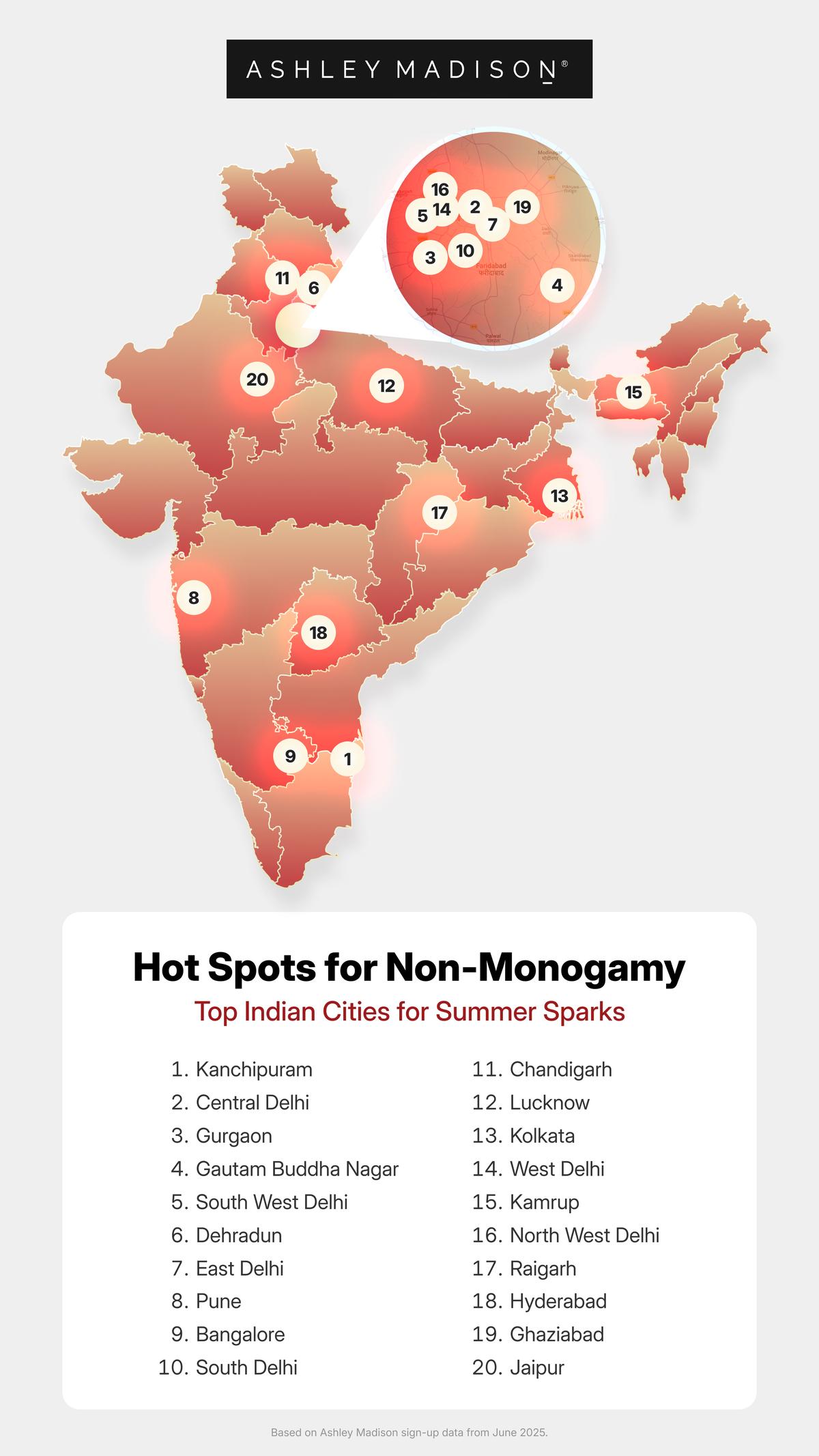Picture this: you are the CEO of a data orchestration company, who is supposedly tuned into patterns. Yet somehow, you are oblivious to the iPhones orbiting your VIP box at a Coldplayconcert. During the Boston leg of their 2025 tour, Chris Martin spotlighted a cosy couple on the jumbotron — none other than Astronomer CEO Andy Byron and Chief People Officer Kristin Cabot. His cheeky quip? “Either they’re having an affair or they’re just very shy.” And with that, ColdplayGate was born.
X (formerly Twitter) did what it does best, erupted. Memes flew. “Never take your affair to a Coldplay concert,” posted @tribune. There was outrage over the pair’s married status, and even more over their total lack of stealth. Andy Byron resigned on July 20, after boardroom rage and public spectacle. In 2025, it seems, betrayal is full HD and trending by morning.
Infidelity is no new comet, but technology has made it shine. Burner phones have evolved into encrypted WhatsApp chats and sneaky Instagram DMs. Discretion is promised, drama is delivered. That Coldplay clip has 34 million views and counting. One user quipped, “ALL YOU HAD TO DO was no-sell it,” while another pointed out the irony of the HR head flouting the very ethics they likely helped draft.

Infidelity isn’t restricted to the office anymore
Meanwhile, Andy Byron’s wife, Megan, was flooded with Facebook messages before she quietly vanished offline. Love in the time of surveillance capitalism is brutal.
Closer home
But while the western world processed its popcorn-worthy scandal, India was quietly topping its own charts. Enter: Kanchipuram. Famous for temples and silk saris, the town now holds the rather unexpected title of India’s most unfaithful city, according to Ashley Madison’s June 2025 data. From #17 last year (according to Ashley Madison’s winter data) to #1 now, Kanchipuram’s climb reveals one thing: infidelity is not confined to metros. Smaller cities like Dehradun, Kamrup and Raigarh (which were also on the list) are proving that non-traditional relationships thrive far beyond the urban elite.

The Ashley Madison data
A 2024 Gleeden survey revealed that 55% of married Indians admit to cheating. Tier 1 and 2 cities lead, thanks to anonymity and easy access to apps. A 2025 Ashley Madison–YouGov survey placed India alongside Brazil with the world’s highest infidelity rate at 53%.
But while western cultures often attribute cheating to opportunity, Indian affairs are more emotionally charged. According to Gleeden, 77% of Indian women cite boredom, and 72% report no regret. Perhaps surprisingly, it is educated, urban Indian women aged 30–60 who dominate infidelity apps. Financial independence, autonomy and — let’s face it — monotony have reshaped their approach to relationships.
So, are we in the middle of an infidelity boom? Not quite. Data like the General Social Survey in the US suggests that cheating rates have largely plateaued. What has shifted, dramatically, is visibility and with it, perception.
In 2025, infidelity is not so much on the rise as it is in the spotlight. Where once affairs lived in the shadows — hidden in office corridors and “business trips” — they now play out in pixels. From WhatsApp leaks to TikToks to 4K jumbotron footage, the Internet has evolved from a space for flirtation to a global surveillance network. A single kiss can now unravel careers, marriages, and public reputations within 48 hours.
But culturally, our responses remain complex, and at times, deeply contradictory. Accountability is uneven. Andy Byron resigned within days of ColdplayGate breaking. Kristin Cabot, his HR counterpart and co-star in the scandal, has yet to face confirmed consequences, sparking debates about gender, power, and institutional double standards. Is one punished for optics and the other protected for silence?
Meanwhile, public opinion is split between moral panic and meme-making. Some mourn the decline of values. Others tweet, “Don’t get caught during Fix You,” and move on.

Surprisingly, India alongside Brazil has the world’s highest infidelity rate
| Photo Credit:
fizkes
Relationships themselves have adapted. Many couples now treat infidelity not as an instant deal-breaker but as a signpost of emotional drift, unmet needs, or sheer fatigue. Some split. Others go to therapy. Many sweep it under the rug like last night’s takeaway. The language has shifted too — “open,” “ethical non-monogamy,” and “situationships” now coexist with old-school commitment. In fact, apps like Gleeden and Ashley Madison thrive on this blurred space between desire and discretion.
What we are witnessing is not a moral decline — it is a perceptual shift. Infidelity in 2025 is less taboo, more talked about, and oddly, more marketable. It is the next Netflix docu-drama, the trending clip on X, the topic over drinks. And as personal choices become public property, even private betrayals get branded.
So no, we are not cheating more. We are just getting caught better. And judged differently. It is no longer enough to cover your tracks, you will need to watch the crowd, the camera, and the cloud.
And honestly, maybe just pick a different concert.
Published – July 21, 2025 03:37 pm IST
